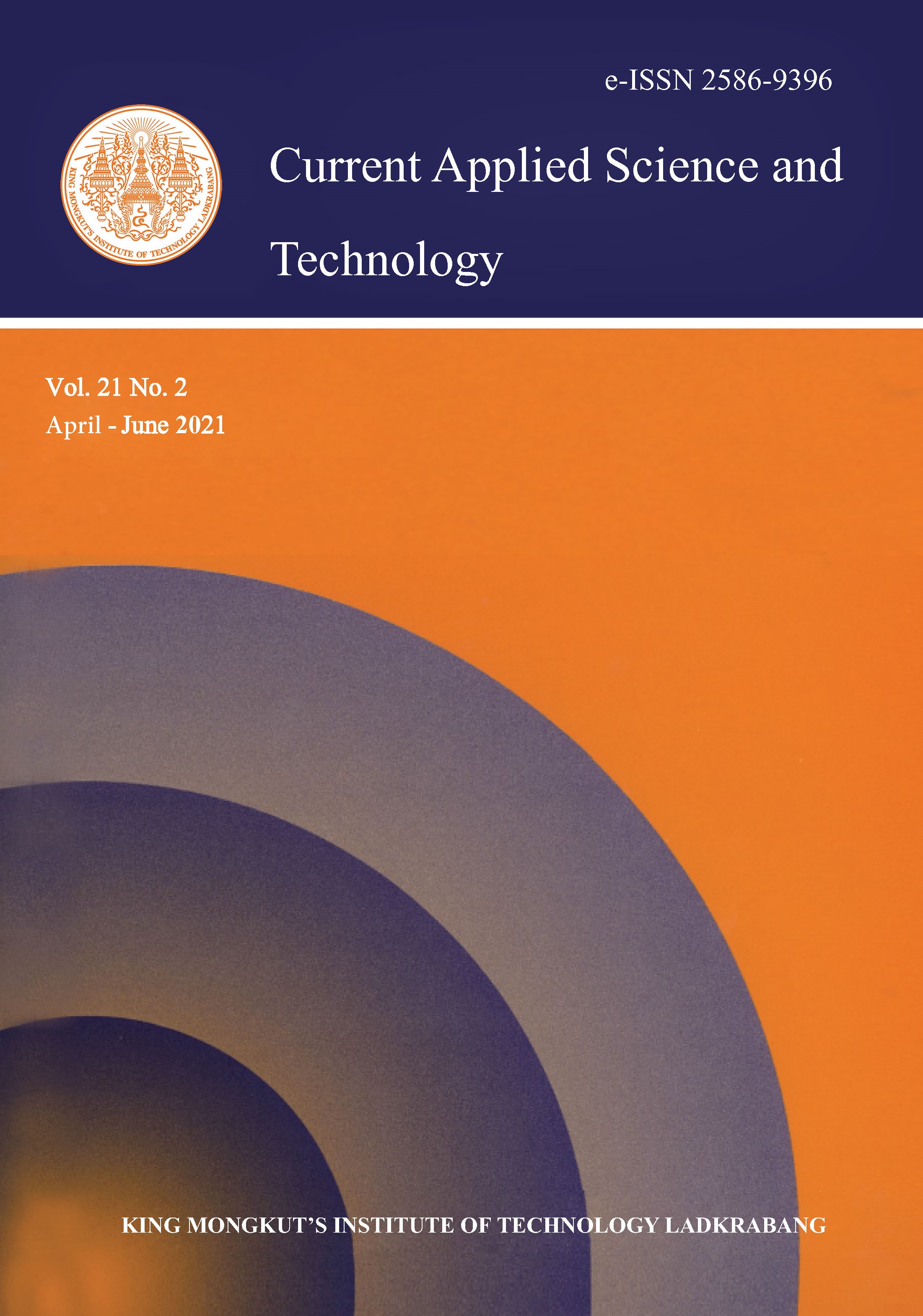Designing of Optimal Required Sample Sizes for Double Acceptance Sampling Plans under the Zero-Inflated Defective Data
Main Article Content
Abstract
This research proposes an optimal double acceptance sampling plan (DSP) for manufacturing that is affected by zero-inflated data. Suppose that the number of defective items for sample inspection is considered to be under Zero-inflated Poisson (ZIP) distribution. A multi-objective optimization using Genetic Algorithm is applied to calculate the optimal parameters of the proposed DSP, which is concerned with maximizing the probability of acceptance sampling plan and minimizing the total cost of inspection and the average number of samples simultaneously. The optimal solution was focused on the design of the required sample sizes based on three different scenarios. The results showed that the first sample and the second sample should be equal . Moreover, it was found that the probability of extra zeros under the ZIP distribution affects the required sample sizes and the performance of the proposed DSP. Illustrations for selecting the optimal parameters of the proposed DSP are also provided. Real data with excess zero is used to illustrate the application of the proposed DSP.
Keywords: double acceptance sampling plan; zero-inflated poisson distribution; probability of extra zeros; probability of acceptance sampling plan; Genetic Algorithm; multi-objective optimization
*Corresponding author: Tel.: (+66) 2549-4137 Fax(+66) 2549-4138
E-mail: wimonmas_b@rmutt.ac.th
Article Details
Copyright Transfer Statement
The copyright of this article is transferred to Current Applied Science and Technology journal with effect if and when the article is accepted for publication. The copyright transfer covers the exclusive right to reproduce and distribute the article, including reprints, translations, photographic reproductions, electronic form (offline, online) or any other reproductions of similar nature.
The author warrants that this contribution is original and that he/she has full power to make this grant. The author signs for and accepts responsibility for releasing this material on behalf of any and all co-authors.
Here is the link for download: Copyright transfer form.pdf
References
Montgomery, D.C., 2005. Introduction to Statistical Quality Control. New York: John Wiley and Sons.
Duarte,B.P.M. and Saraiva, P.M., 2008. An optimization-based approach for designing attribute acceptance sampling plans. International Journal of Quality and Reliability Management, 25, 824-841.
Kaya, I., 2009. A genetic algorithm approach to determine the sample size for attribute control charts. Information Sciences,179, 1552-1566.
Kobilinsky, A.and Bertheau, Y., 2005. Minimum cost acceptance sampling plans for grain control, with application to GMO detection. Chemometrics and Intelligent Laboratory Systems, 75(2),189-200.
Cheng, T.M. and Chen, Y.L., 2006. A GA mechanism for optimizing the design of attribute-double-sampling-plan. Automation in Construction, 16(3), 345-353.
Sampath, S. and Deepa, S.P., 2012. Determination of optimal double sampling plan using Genetic Algorithm. Pakistan Journal of Statistics and Operation Research, 8(2), 195-203.
Braimah, O.J., Saheed, Y.K., Owonipa, R.O. and Adegbite, I.O., 2015. Economic reliability acceptance sampling plan design with zero acceptance. African Journal of Computing and ICT, 8(3), 69-84.
Hsu, L.F. and Hsu, J.T., 2012. Economic design of acceptance sampling plans in a two-stage supply chain. Advances in Decision Sciences, 2012, https://doi.org/10.1155/2012/359082
Fallahnezhad, M.S. and Aslam, M., 2013. A new economical design of acceptance sampling models using Bayesian inference. Accreditation and Quality Assurance,18(3), 187-195.
Fallahnezhad, M.S. and Qazvini, E., 2017. A new economical scheme of acceptance sampling plan in a two-stage approach based on the maxima nomination sampling technique. Published online in Transactions of the Institute of Measurement and Control, 39(7), https://doi.org/ 10.1177/0142331216629203
Fallahnezhad, M.S., Qazvini, E. and Abessi, M., 2018. Designing an economical acceptance sampling plan inthe presence of inspection errors based on maxima nomination sampling method. Scientia Iranica, 25(3), 1701-1711.
Lambert, D., 1992.Zero-inflated Poisson regression, with application to defects in manufacturing. Technometrics, 34, 1-14.
McLachlan, G. and Peel, D., 2000. Finite Mixture Models. New York: John Wiley and Sons.
Loganathan, A. and Shalini, K., 2014. Determination of single sampling plans by attributes under the conditions of zero-inflated Poisson distribution. Communication in Statistics-Simulation and Computation, 43, 538-548.
Uma, G. and Ramya, K., 2016. Determination of quick switching system by attributes under the conditions of zero-inflated Poisson distribution.International Journal of Statistics and Systems, 11, 157-165.
Rao, G.S. and Aslam, M., 2017. Resubmitted lots with single sampling plans by attributes under the conditions of zero-inflated Poisson distribution. Communication in Statistics-Simulation and Computation, 46, 1814-1824.
Wang, F.K. and Hailemariam, S.S., 2018. Sampling plans for the zero-inflated Poisson distribution in the food industry. Food Control, 85, 359-368.
Holland, J.H., 1975. Adaptation in Natural and Artificial Systems. Ann Arbor: University
of Michigan Press.
Xie, M., He, B. and Goh, T.N., 2001. Zero-inflated Poisson model in statistical process control. Computational Statistics and Data Analysis, 38(2), 191-201.
The Math WorksTM, 9.7.0 (R2019b), License Number 40791029.


